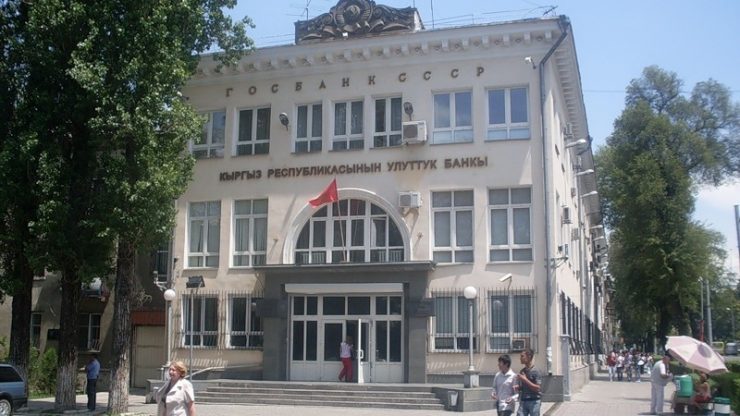DIGITAL CURRENCIES
Kyrgyzstan is considering to start circulation of the digital som on January 1, 2023. The national digital digital currency is meant to facilitate economic growth through increased investment activity and ease of payments. [Source: Economist.kg]
Kazakhstan will conduct limited tests of the digital tenge, including commercial deals, in October to assess the infrastructure for circulation of the digital currency and its impact on the country’s financial system. After the test the government will take a decision whether the digital tenge will be implemented. [Source: LS]
The Central Bank of Russia (CBR) is due to start test use of the digital ruble in commercial B2B and B2C operations on April 1, 2023. The digital ruble is another form of the national currency, which can be stored in wallets at a CBR-run platform and can be used both for online payments like non-cash rubles and for offline payments without an Internet connection. [Source: Kommersant]
RUSSIA’S ANALOGUES DRIVE
Russian businesses spend nearly $330 million for foreign-made software each year, the Russian government calculated. Domestic analogues exist for 80% of the foreign programs, with 60% of foreign products having more than one Russian analogue. [Source: TASS]
Online services of Sber, the biggest Russian bank, started to migrate to Russia-made Transport Layer Security (TLS, also known as SSL) issued by the Russian Ministry of Digital Development. According to German Gref, Sber’s CEO, the transition will ensure the stability of the bank online systems independently of decisions made by foreign TLS-suppliers. [Source: Habr]
Sber reportedly excluded Russian producers of servers, KNS Group and Aquarius, from a $128-million tender as domestic products failed to meet technological requirements. Three remaining producers are Chinese producers Lenovo, Huawei, and Inspur. [Source: RBC]
CYBERSECURITY
Russian cybersecurity company Group-IB recorded new 2,000 Internet domains of fake cryptoprojects created for fraud schemes and promoted through Youtube-channels in the half of 2022, a five-time increase year-on-year. 63% of these domains are registered at Russian Internet registries, but targeted at foreign cryptocurrency owners. [Source: RB]
Biometrics for identification of the user will be used in selling SIM-cards in Kazakhstan, a technology that’s now being implemented in the banking sector and on the government services website. The initiative by the country’s government that’s going to become a law at an unspecified future date will help reduce the number of mobile-related frauds and bring more transparency to the industry. [Source: Orda.kz]
YANDEX
Yandex, Russian Internet giant, launched The Simple Monetization platform for mobile applications. The platform gives the app owners monetization tools of more than ten advertising services without the need to register at all of them and deal with each of them separately. [Source: Yandex]
Yandex Go, a taxi service of Yandex, started operations in Dubai (the United Arab Emirates) in a pilot mode under Yandex’s international brand Yango. At the moment, only transportation of passengers is available, with food and parcels delivery services to be possibly launched in future. [Source: VC]
FIGHT FOR TALENT
Sber, Yandex and Russian biggest cell operator MTS are leaders in hiring IT specialists this year, with most openings relating to coders, analysts, and product managers. MTS is at its historic highest in IT hiring, a trend caused by an intense development of IT products and incentives for highly qualified professionals, including corporate educational programs. [Source: Strategy Journal]
Yandex has finished rebranding its non-commercial IT educational platform Academia, an aggregator of various courses for beginners. The platform’s new focus is to become a community for life-long learning. [Source: VC]
RuStore, launched by VK with state support as an alternative to AppStore and Google Play, is now open for applications designed by individuals. Experts say the move will lead to a hike in independent video games (indie games) production. [Source: Kommersant]
STARTUPS
The First Cargo Company (FCC), a Russian logistics operator and rail freight service provider, launched a platform for IT startups. The company offers startups its intellectual support through share of company employees’ expertise, and a launch and scale-up at FCC’s facilities. [Source: First Cargo Company]
Russian education startup Think24 attracted an undisclosed sum from VIM Investments, a subsidiary of the bank VTB, in exchange for a 33% share in the company. Think24 uses artificial intelligence (AI) to help Russian pupils prepare themselves for school graduate exams. [Source: Telegram channel Russian venture]
Kazakhstan’s IT company Tech Culture created Metabank, a bank in a metaverse, specially for the Digital Bridge forum to be held in the country’s capital Astana (former Nur-Sultan) in late September. Visitors to the forum will be able to test Metabank’s capacities. [Source: Plus World]
REGULATION
In 2022, tax payments by cryptocurrency miners to Kirghizia’s federal budget through July increased by 2.5 times year-on-year, to about $92,000. The government said the mining industry may help untap the potential of the country’s energy sector through investments in small-sized grids. [Source: Telegram channel Bloqchain-Central Asia]
A tax rate for residents of the Park of Creative Industries will be just 1% of turnover during the first years of the new entity to be established in the coming months in Kyrgyzstan. Then the rate will gradually increase to 23% to 24%. [Source: Economist.kg]






Add comment